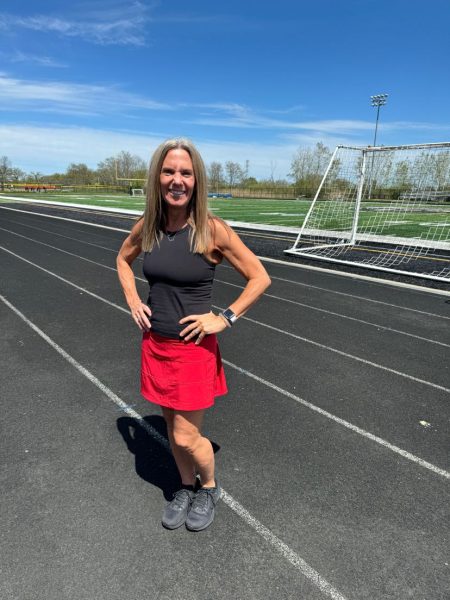Newborns develop mental health issues during the COVID-19 pandemic
Mental health issues have arisen since the pandemic began. From the elderly to high schoolers, anxiety is rising at every age level. The age group least mentioned is babies, since they are expected to be happy as long as they have caregivers and a home, but that is not always the case.
With the already naturally high anxiety levels during this period of teenagers’ lives, staying at home for a year and then going back to school, essentially being forced to socialize, is brutal. The only difference is teenagers still have memories before COVID to look back to and feel happy about.
Babies born during COVID have are facing a crisis that is often overlooked. Not many people can even see the symptoms of a baby with mental health issues because they do not appear until after the child is around other children or people.
“When my daughter was born, I never thought about any hardships she may have. We were protecting her; we had no choice but to keep her at home. She’s still too young for daycare, so we have a nanny, but that’s only three people she’s met and socialized with for seven months! I never believed it could create problems for her in the future,” said Rhoda Koech, a mother of a child born during COVID-19.
“It did take a while for her to finally open up to the rest of her family. I can see why, too. She’s only just met them, and they’ve lived in America the whole time she was alive, so to her they’re strangers,” Koech said.
The negative effects of mental issues can vary widely. Important factors include how long a child stayed at home, how many people the child socialized with, and how well those interactions went.
“Quarantine definitely changed me and a lot of other people I know. I didn’t realize it until I was allowed to go out again, but when I did, I couldn’t believe how different everything was. I was so anxious, and it was such a simple situation. I didn’t understand it. I had such mixed emotions. When you try to imagine that for such a young child, it’s horrible. They can’t talk properly like I can, so there’s no real way to know what they’re thinking,” said Olivia Lewis, a student studying child development.
Even teenagers with more developed brains than babies can be confused and feel overwhelmed by the abrupt changes brought by the pandemic.
“I can imagine how hard it must be for babies and parents during the pandemic. When you’re a child or more so a baby, the things that you learn and the things that happen to you are like a base for who you are in the later years. Being born in this pandemic can increase the rate of children developing early anxiety, depression, ADHD, and even PTSD. The parents want to keep the baby safe, but how is the baby supposed to learn, grow, and socialize?” Lewis said.
It is clear this will have an effect on the next generation of teens, possibly increasing the anxiety rate of the average high schooler. The future of these children is heavily supported by how fast the pandemic ceases and how much society can rebuild during the aftermath.
“After meeting her cousins and getting acquainted with their voices and their smells and how they act, I can say my daughter is a bit more social now that she has three new cousins she loves. She still clings to me and cries a lot, but it’s progress,” Koech said.
There are going to be many different methods and tactics that professionals can or will offer to parents worried about their child, but the amount of anxiety or trauma the child goes through in the present may determine the amount of mental health issues that will continue to affect the child later on in the future.
With such changes underway, it is really up to the people to determine how long we put children through this. The longer children grow up in a world like this, the longer the effects may last which could eventually affect generations to come.




